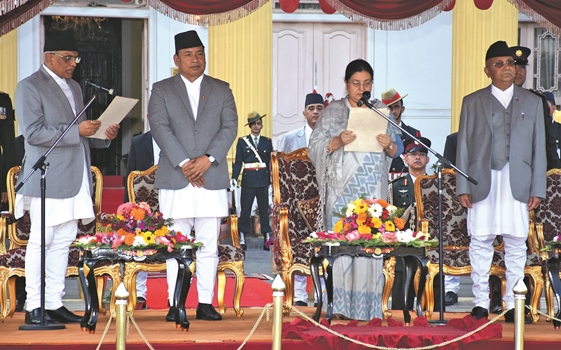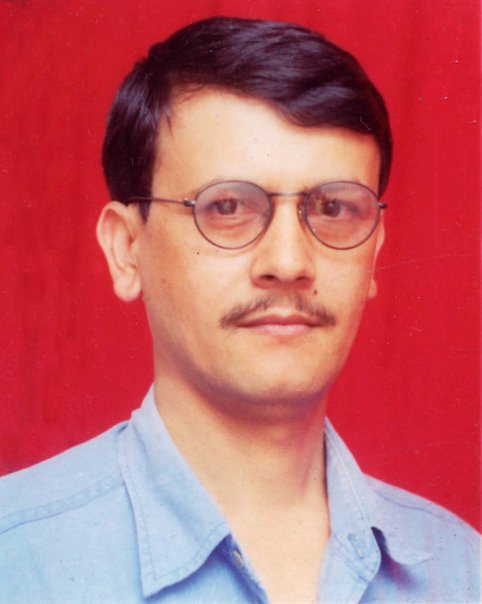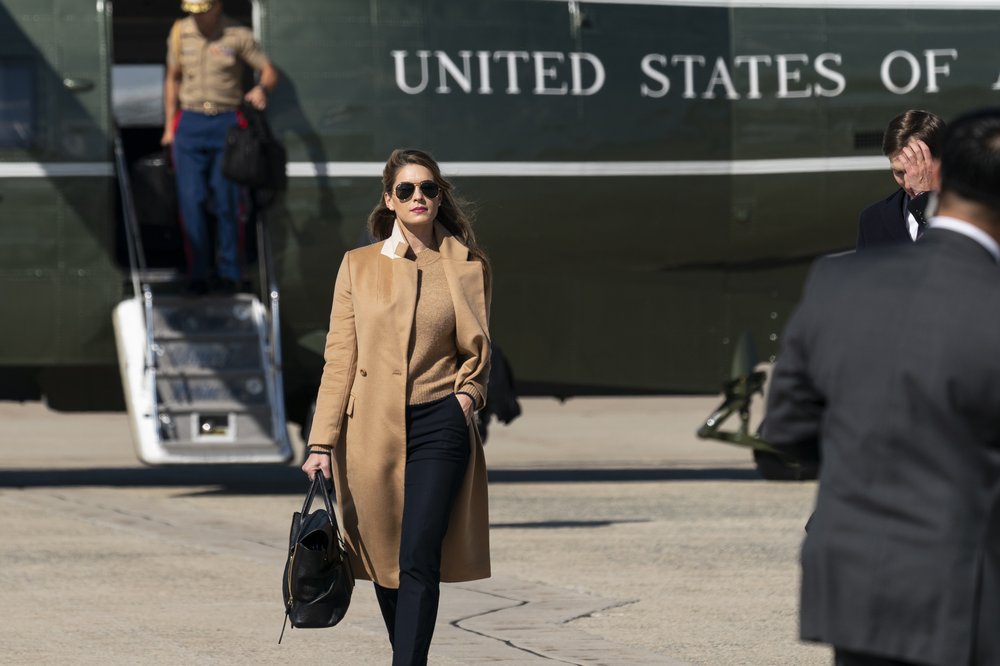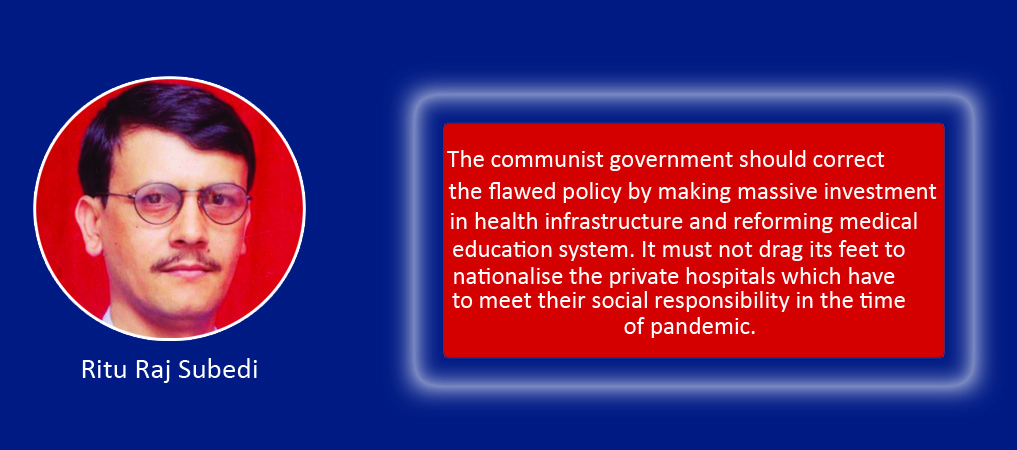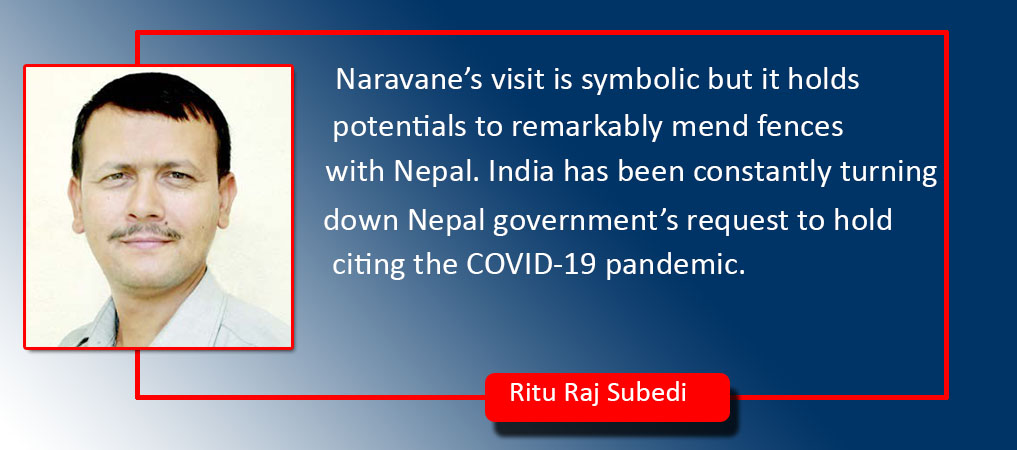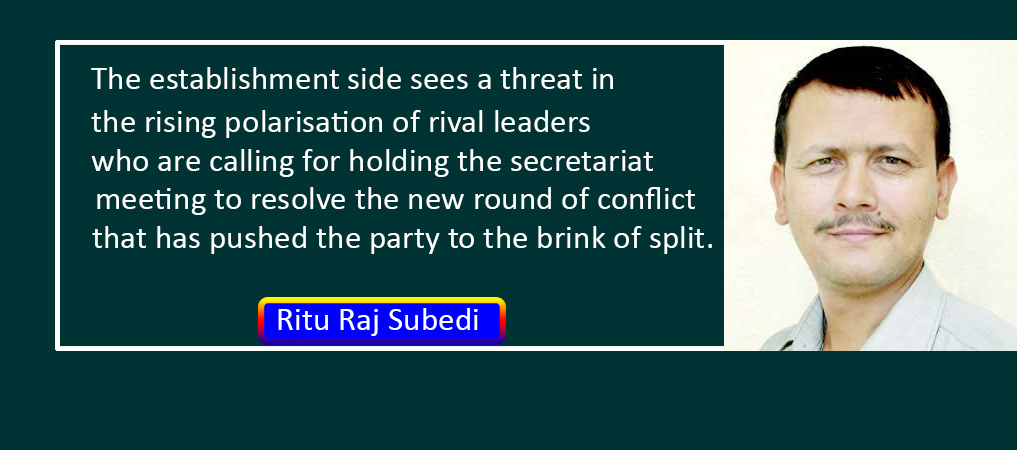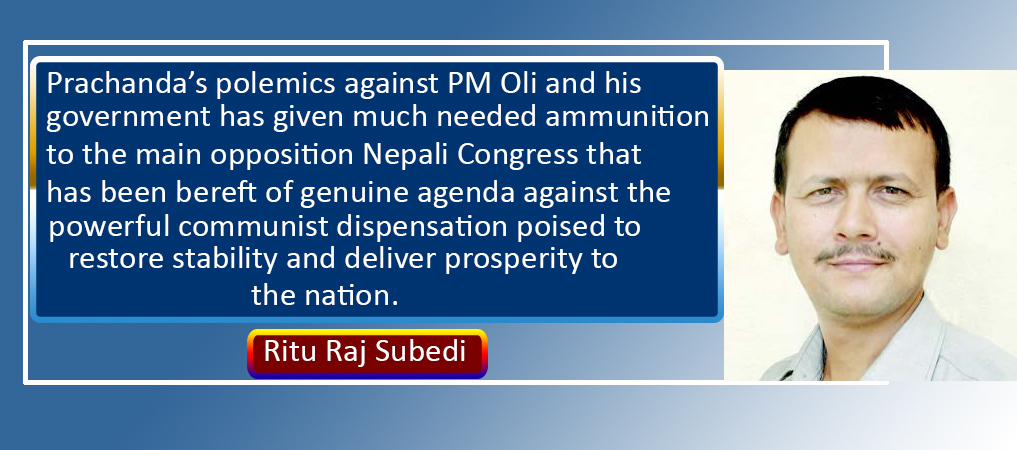Government Stays The Course
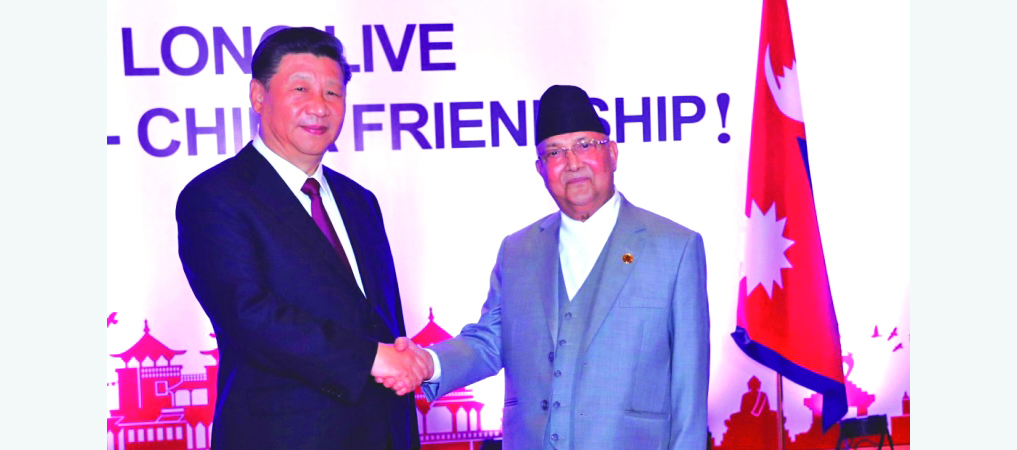
Ritu Raj Subedi
KP Sharma Oli-led government has completed two years in office today. The first year was dubbed as the base year marked by the formulation of key legislations required for drastic socio-economic initiatives. It is one of the strongest democratically elected governments the country has got since it saw the first ray of democracy in 1951. Equipped with sweeping electoral mandate, the Oli government has been entrusted with the task of consolidating the federal republican system apart from ensuring peace, prosperity and happiness for Nepalis. For all its natural shortcomings, the government is on course to achieve the goals of inclusive economic growth, reconstruction of earthquake-hit buildings, implementation of social security scheme, execution of foreign trade, diplomacy, and so on.
Enhanced foreign relations
Two years into office, PM Oli has continued to execute independent foreign policy that is geared towards mustering the support of neighbours, friendly nations and international community to promote economic diplomacy and opening up policy.
It has attached top priority to interacting with the outer world and bolstering the bonhomie with the neighbouring countries.
The state visit of Chinese President Xi Jinping last October has elevated Nepal-China relationship to the strategic level. It was the first visit of a Chinese President in 23 years. President Xi announced Rs 56 billion economic assistance to Nepal for the next two years. He promised to support Nepal’s efforts to achieve prosperity and stability.
It is up to the political leadership to cash in on Chinese magnanimity. The two sides had inked far-reaching agreements which will not only deepen the bilateral ties between the two nations but also create space for Nepal to play a role as well as take advantage from global market. Nepal has evolved from a land-locked to land-linked nation, with China granting the access to its sea ports. Nepal needs to demonstrate political and diplomatic acuity to benefit from the accords signed with China.
Likewise, the state visit of Bangladeshi President to Nepal in November and Prime Minister Oli’s participation in the 18th summit of Non-Aligned Movement in Azerbaijan marked important diplomatic events. Nepal has also invited Russian President Vladimir Putin to pay a visit to this Himalayan nation. The country’s foreign policy profile gets another boost if Putin sets foot on Nepal’s soil this year.
“Nepal’s foreign policies have been further articulated, with its growing activeness, participation and engagement in the bilateral and multilateral forums,” said Minister for Foreign Affairs Pradeep Gyawali.
Responding to a query of The Rising Nepal, Minister Gyawali said that Nepal is poised to tap opportunities amidst challenges generated by new geopolitical dimensions at home and abroad. “We have been successful to forge a meaningful economic partnership with both the neighbours in the last two years,” added Gyawali.
PM Oli came to power largely on the planks of nationalism, stability and prosperity. His nationalist credentials were primarily built on his unflinching audacity to stand against the unofficial Indian blockade in 2015. He has maintained a patriotic spirit while on the driving seat of the government. His government has sent a diplomatic notice to the Indian government protesting the new Indian map that has brazenly incorporated Nepal’s Kalapani, Lipulek and Limpiyadhura into its territory.
Oli is the first Nepali PM who has demanded that India immediately withdraw its military from Kalapani and return the encroached territories to Nepal. In the past, no government had showed the guts to speak against the encroachment of Nepal’s border and lands for fear of losing the ‘favour’ of the southern neighbour. Oli led an all-party meeting to produce a unanimous voice to take back these infringed Nepali territories from India. This has not only exerted big pressure on India but also provided a clear guidance to the future government to fight for territorial integrity.
Taming secessionist/violent groups
On the political front, the Oli government became successful in bringing CK Raut-led secessionist outfit, Independent Madhes Alliance, into the mainstream politics. Raut was active to incite the innocent youths for the separatist drive, posing a threat to the national unity and sovereignty. After joining the constitutional politics, Raut formed Janamat Party that took part in the by-election. Now the security threat from Raut has virtually subsided in Terai and other forces resorting to violent path are expected to follow suit. The government has outlawed and largely controlled the violent activities of Netra Bikram Chanda-led CPN. Hundreds of its leaders and cadres have been arrested and its influence is gradually declining. However, the government should not stop making meaningful political efforts to bring Biplav group into the mainstream parliamentary politics.
Economic growth & federalism
Nepal has witnessed an increased economic growth under the new administration. In the past, growth used to hover around 4.1 per cent. Last year, it rose to 7.1 per cent and currently it stands at 6.4 per cent.
“I believe Nepal has made strides in economic sector following the formation of the present government. We have predicted high economic growth in future, too,” said Faris Hadad-Zervos, World Bank Country Manager for Nepal. Talking to an online paper, Faris shared his positive impressions about the performance of the government. He said: “Seen from the eyes of the WB, Nepal had prepared ground during the last two years to carry out many works in the years to come. The country has entered into the development cycle”
Amidst the growing inkling about the success of federalism, Nepal has moved ahead to implement fiscal federalism that seeks to make a judicious allocation of natural resources and national budget among seven states. It has still to go a long way but the preliminary experiences indicate that the government is over the hump in dealing with its teething troubles.
“The transition from a unitary to federal system is highly complicated and it remains there for a long time. It can take decades or even centuries to institutionalise the federal system. In the US, we are still learning from the implementation of 250-year-old federalism. The truth is that we have seen progress in the implementation of federalism in Nepal,” said the WB head of Nepal office.
Positive indications in trade
There is a positive indication in the country’s foreign trade and doing business. Imports have gone down with the increase in the export of Nepali goods to different nations. This will surely help attain self-reliant economy in the long-run. Reconstruction of houses and buildings damaged by the 2015 quake has gained pace. Most of the private houses have been built with the government grants. There is a promising gain in the construction of heritage and cultural sites in the Kathmandu Valley.
With the inauguration of Motihari-Amlekhgunj Petroleum Products Pipeline, the transport and supply of fuel from India is expected to be smooth. Various factors such as disruption along Nepal-India border and strike of tanker drivers and owners had time and again obstructed the distribution of petroleum products. In a similar manner, the establishment of Integrated Customs Check Post in Biratnagar will facilitate trade and cross-border movement of the peoples between the two nations. The timely completion of India-assisted projects will encourage other similar projects to finish their works within the stipulated timeframe. This will have positive implications for Nepal-India relations that had gone sour during the blockade.
There are breakthroughs in the tunnel of the Melamchi drinking water project and Bheri-Babai Irrigation project. The government has signed an agreement with a Japanese company to build Nagdhunga-Naubise tunnel road project. In a similar manner, it has amended the Land Act and begun to distribute the land ownership certificates to the landless people. Fixing the prices of paddy and sugarcane farmers is another laudable government move aimed at increasing the agricultural production.
End negative perception
Nonetheless, the government must double efforts to curb corruption, pollution and inflation that have hit the commoners hard. It needs to be refrained from unnecessary scandals that only erode its credibility in the eye of the public. Moreover, the government should mobilise proper channels to disseminate its good work related to infrastructure development, generation of jobs and social benefits. This is necessary to overcome the negative perception of the government.
(Deputy Executive Editor of The Rising Nepal, Subedi writes regularly on politics, foreign affairs and contemporary issues)
Recent News

Do not make expressions casting dout on election: EC
14 Apr, 2022
CM Bhatta says may New Year 2079 BS inspire positive thinking
14 Apr, 2022
Three new cases, 44 recoveries in 24 hours
14 Apr, 2022
689 climbers of 84 teams so far acquire permits for climbing various peaks this spring season
14 Apr, 2022
How the rising cost of living crisis is impacting Nepal
14 Apr, 2022
US military confirms an interstellar meteor collided with Earth
14 Apr, 2022
Valneva Covid vaccine approved for use in UK
14 Apr, 2022
Chair Prachanda highlights need of unity among Maoist, Communist forces
14 Apr, 2022
Ranbir Kapoor and Alia Bhatt: Bollywood toasts star couple on wedding
14 Apr, 2022
President Bhandari confers decorations (Photo Feature)
14 Apr, 2022



